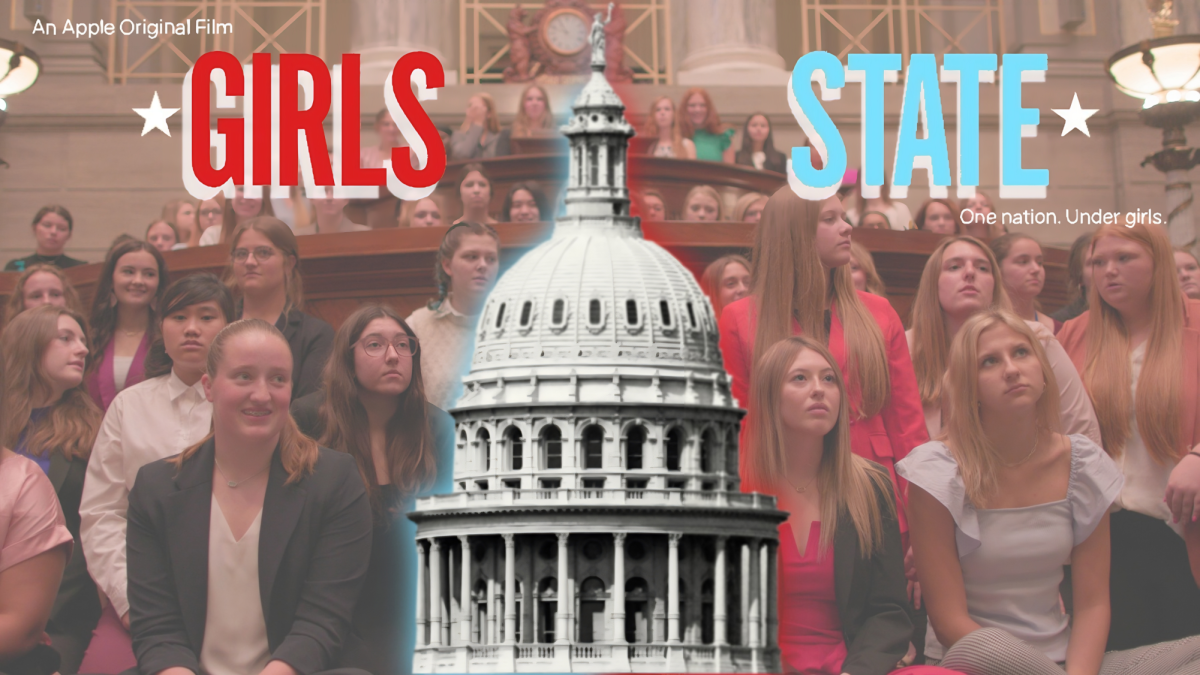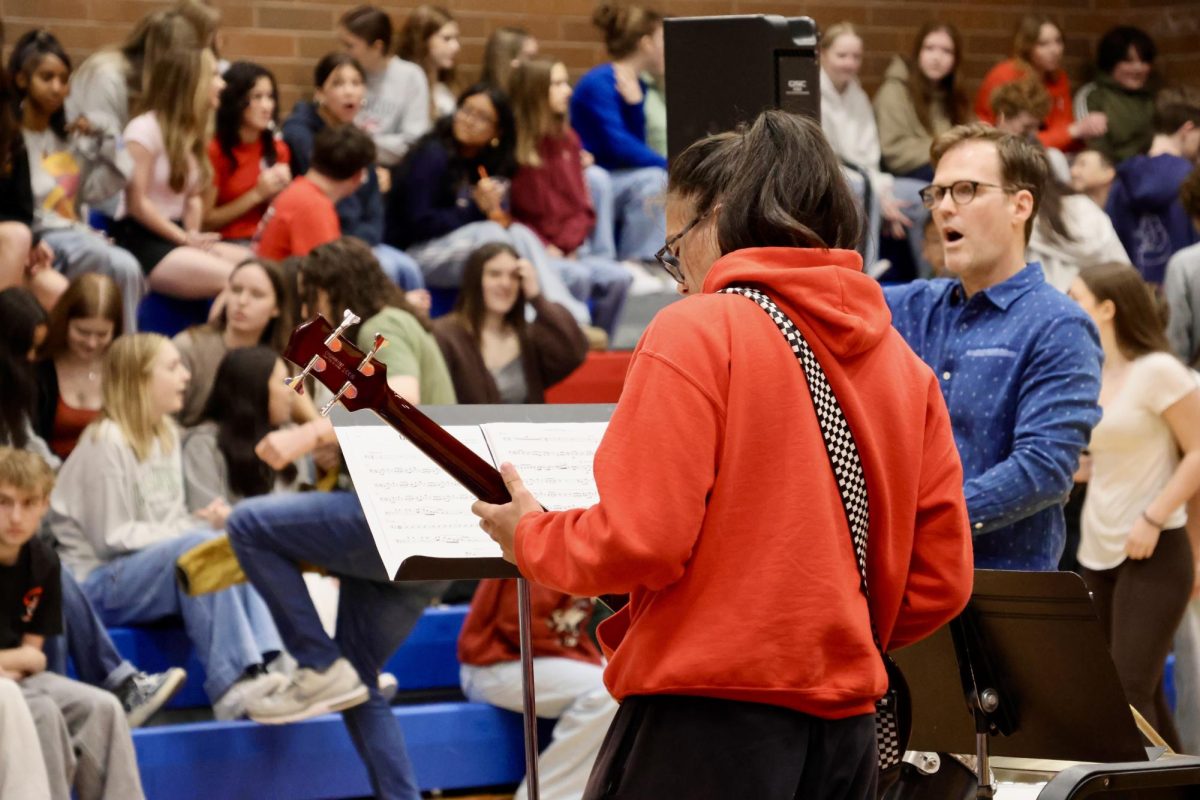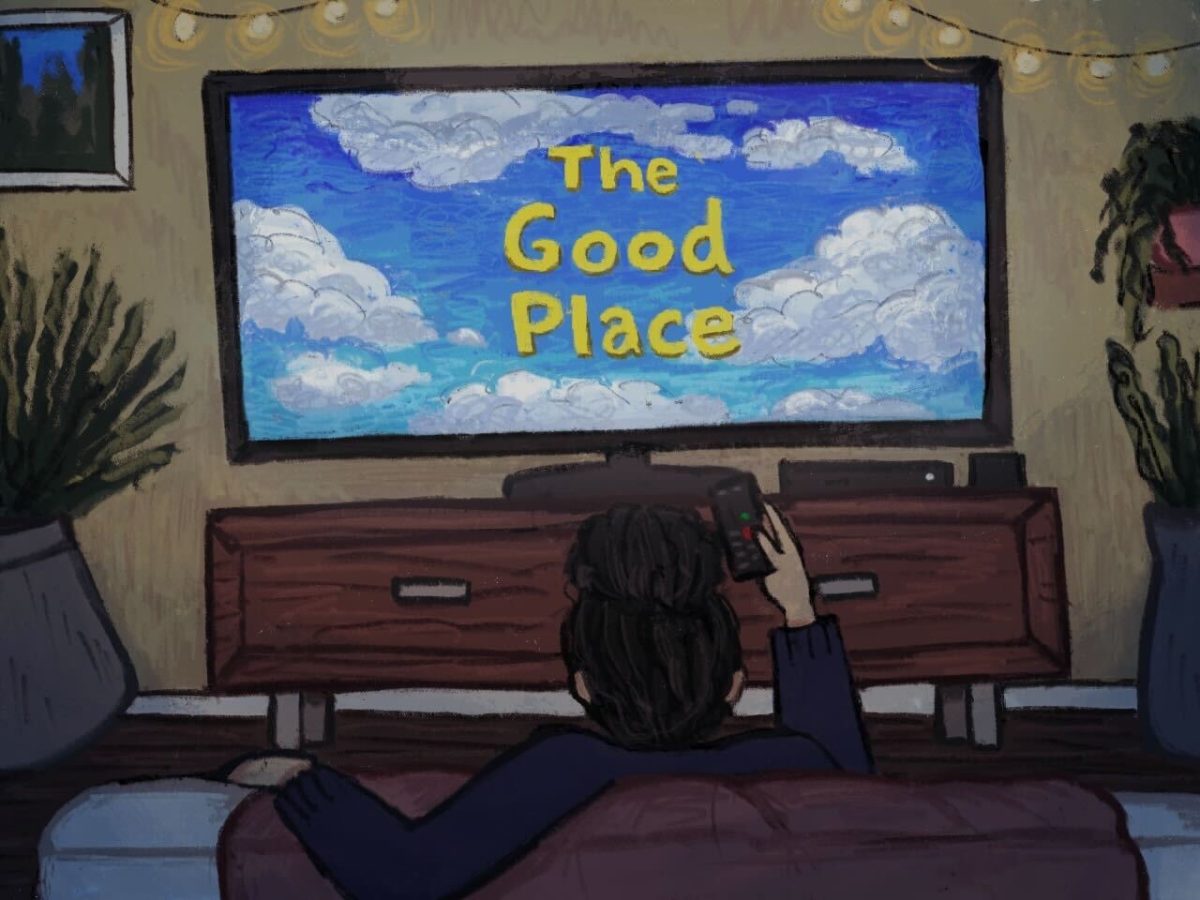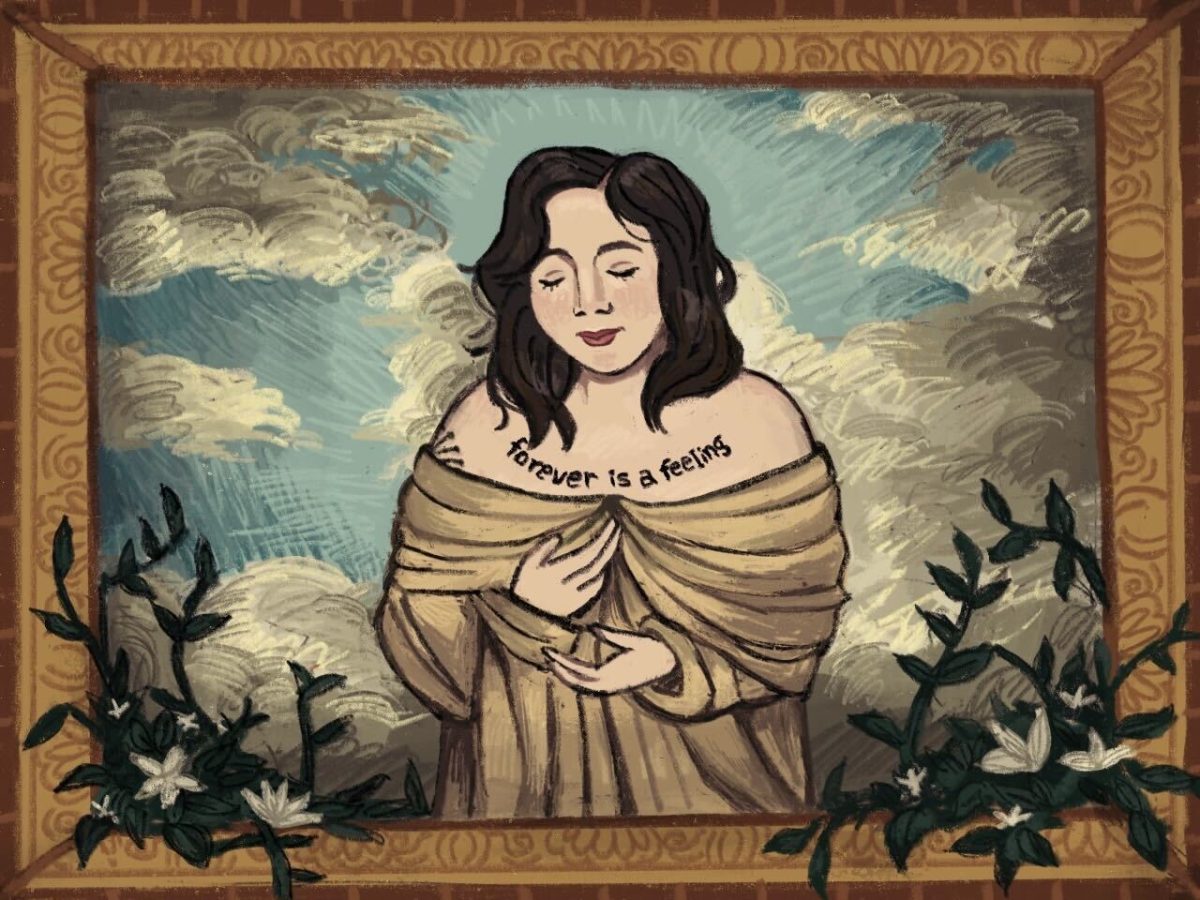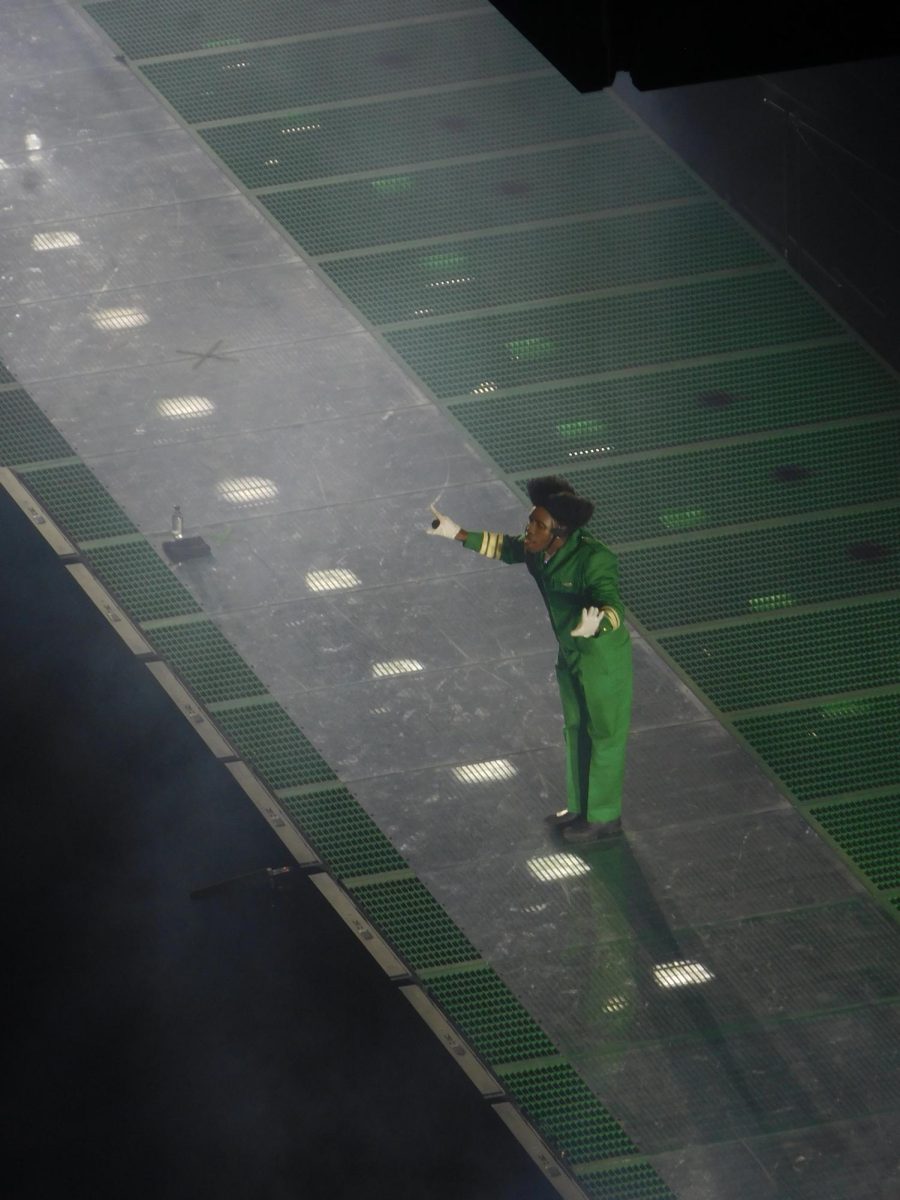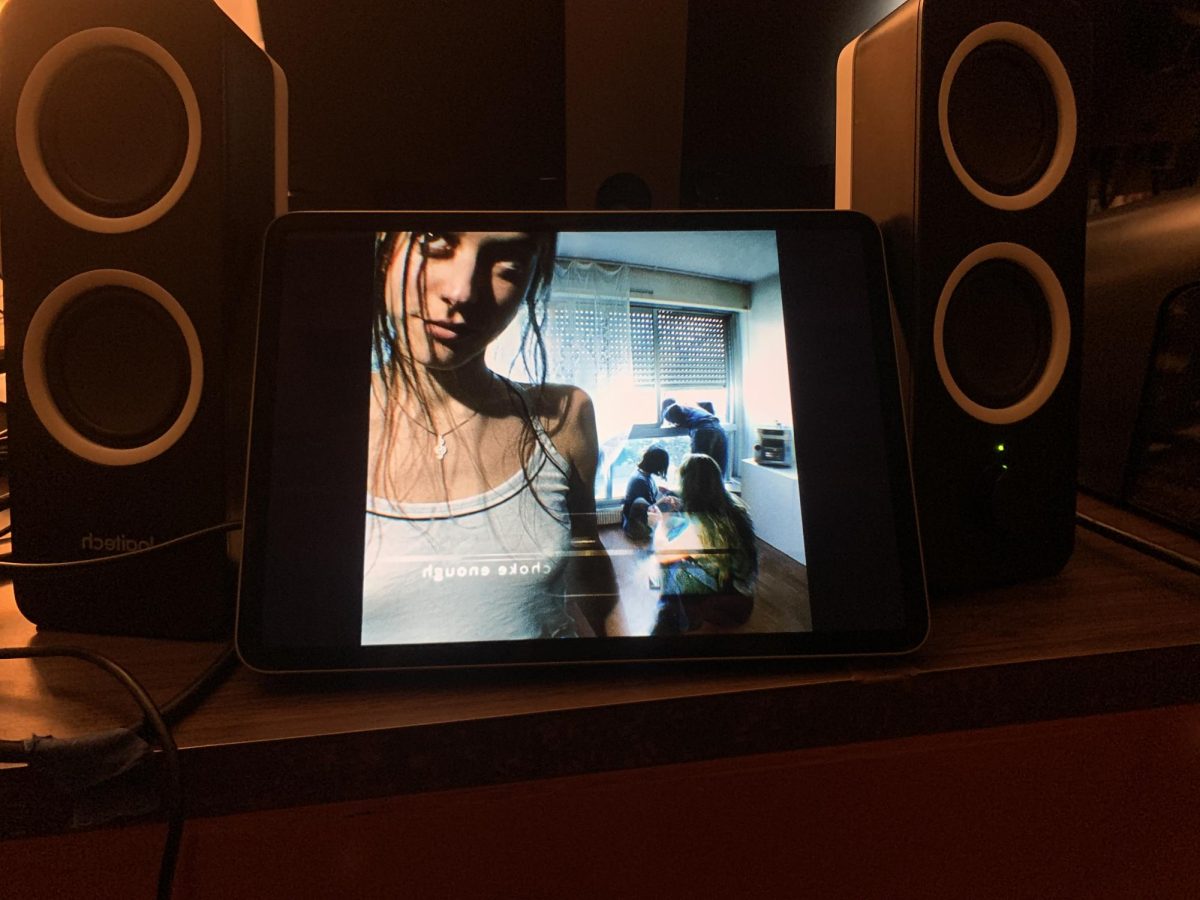A circle of girls freshly elected to act as their faux government’s Supreme Court and about to preside over the American Legion Auxiliary Girls State program’s mock Roe v. Wade repeal, cluster up to boost one another’s spirits.
Each comes up with a mantra for everyone to repeat:
“I deserve to be here.”
“We are all qualified.”
“We are all amazingly talented.”
“We are allowed to make mistakes,” says the last girl in the circle. They all agree a bit more adamantly with that one.
“Girls State,” Amanda McBaine and Jesse Moss’ 2024 companion film to their earlier 2020 documentary, Boys State, is a documentary on a state-level mock government program where high school junior girls are each selected to act as different members of their government.
The film places the majority of its focus on not just Girls State program itself, however, but the girls within it and the contrasting perspectives each of them have.
The kicker with this year’s Girls and Boys State programs is that for the first time in 80 years, the Girls State and Boys State were both held within the same campus, at St. John’s University in Collegeville, Minnesota.
The proximity of the two programs leads to a deeper examination on the difference of experiences between the girls and boys in their respective programs, and shifts the focus of the film from the Girls state to a comparison of their separate environments. This sparks a vital wider conversation about the social imbalance in politics and standards between the genders.
The participants poignantly remark about the disparities they face: the girls are immediately counseled on strict and punitive dress codes, along with buddy systems to ensure their safety. The boy’s counselors never feel the need to do this for them.
Most notably, however, is that while the girls spend much of their time with drawn-out icebreakers and campfire songs, the boys dive directly into politics after their first step on campus, getting to debate over Roe v. Wade way before the girls are even given a chance.
An all-male courtroom discussing women’s bodies.
Meanwhile, the girls vent to each other about their problems in their program:
“Nobody talks politics here!” says Emily Worthmore, a conservative girl running for faux governor.
Agreeing, another girl quotes what the counselor says to her about this very subject:
“Usually, girls run on campaigns that are, like, environment [and] mental health stuff that, honestly, is typically pretty bi-partisan. But, like, if you want to bring politics into it, I say go for it, a thousand percent. Like, obviously you’re going to have people that disagree with you, but —”
“That’s politics” Emily chimes in.
Girls State forces all these young women to face the reality of their social minority with grueling severity as rather than focusing on their own program, they are mostly wrapped up in how the boys are doing politics differently.
This makes the documentary captivating, adding to the greater conversation about the political divide. Sadly, it ends up losing some of its punch because the film never takes the chance to state how sad it is that the girls are forced to constantly compare themselves.
Highlighting the contrast between the boys and girls programs is of course important, but it’s much more crucial to allow the girls space to process the fact that such extreme examination exists in the first place.
That being said, the best thing this film does is let the girls speak for themselves.
Avenues for young people to connect to the greater culture will always be extremely necessary, but “Girls State” cleverly lets the participants speak freely about their situation, giving them a way to take the podium directly and add to the greater conversation themselves.
It’s much harder to add to the conversation, however, when the message your film is trying to convey doesn’t always make itself known.
Overall, it’s definitely a skillfully made film with good pacing and great cinematography, and though I was a bit disappointed to see that the vast majority of its focus is on the difference between men and women in politics rather than a direct study of the girls program, I won’t mark it down for that fact.
It’s that emphasis that allows the real light to shine down on the girls, who always remain mature, compassionate, and insightful — more than most adults can say they are.
This is the kind of documentary where it’s rare to agree with everything on screen. Every girl they follow throughout the film has a different perspective and opinion, and the filmmakers do a good job highlighting that aspect. Political conferences always suffer from some sort of polarization. It’s just what happens when a lot of opinions meet, but the girls always remain respectful and kind.
It’s really important to see young people doing that; it shows us how we can do better when we see them doing the same.
That alone makes it a film worth seeing, and accompanied with crucial remarks about the state of our political climate, it’s definitely worth your time.


